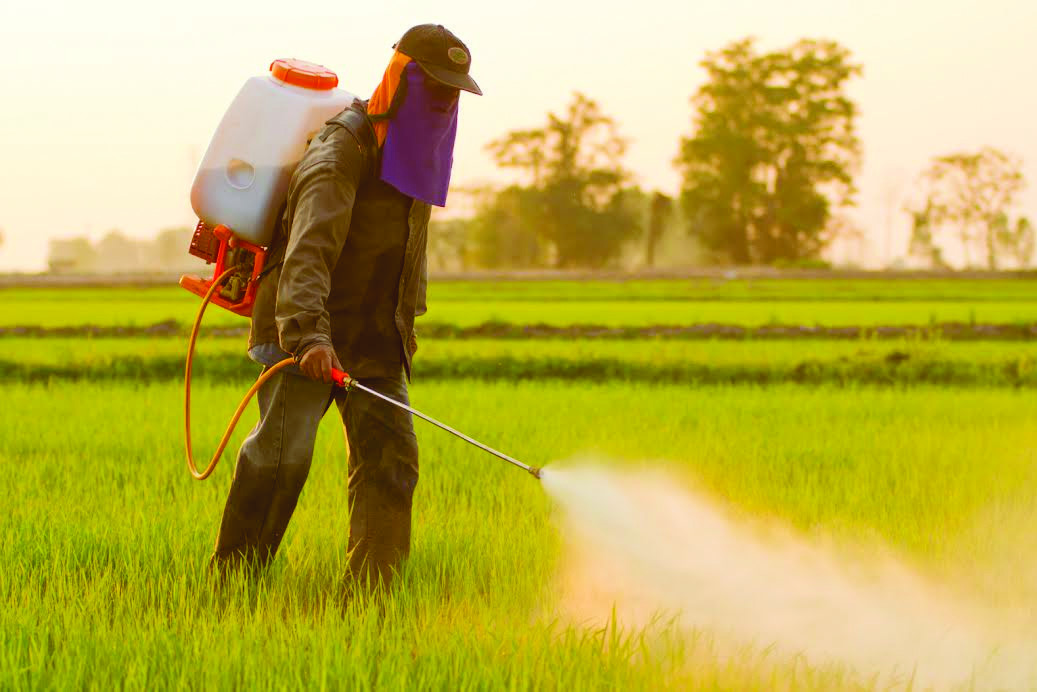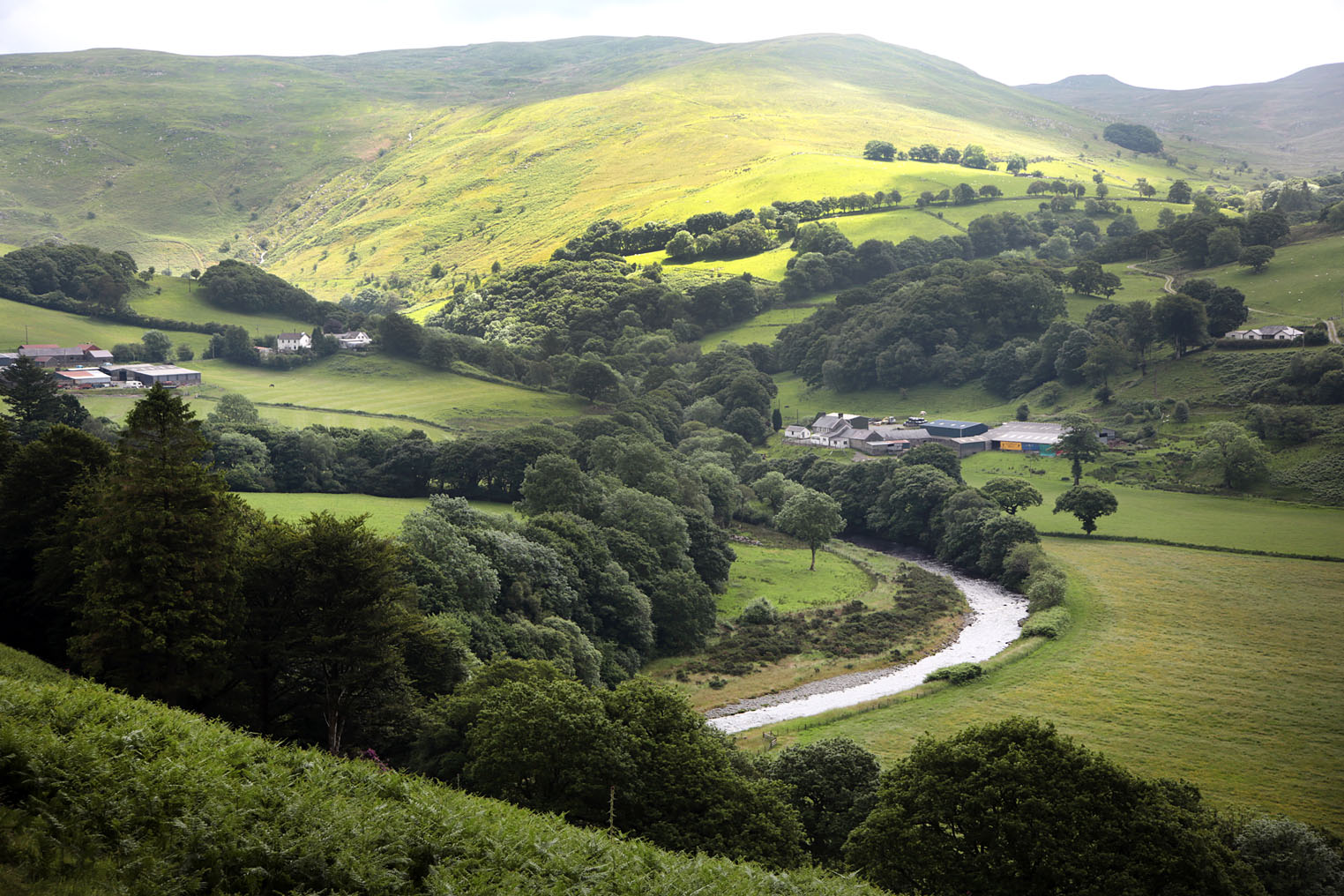Farming
Glyphosate crisis continues


Farmers wait: On pesticide decision
THOUGH THE EU Commission has announced that it will be attempting to secure an 18 month relicensing approval for glyphosate – the world’s most widely used herbicide which is currently mired in controversy over its possible health impacts – member state ministers who rejected previous licensing proposals from the Commission have stuck to their guns ahead of a planned vote.
Responding to the Commission’s proposed temporary relicensing – pending the findings of a report the EU executive has commissioned from the European Chemicals Agency (ECHA) – French environment minister Segolene Royal said France will not change its mind on glyphosate and will not vote in support of the Commission’s proposal.
Germany’s environment ministry has also confirmed on Twitter that it won’t alter its stance next week. Due to the different positions on glyphosate held by Germany’s environment and agriculture departments (controlled by two different political parties making up the country’s coalition government), officials have said Germany will abstain in any glyphosate vote.
COMMISSION’S PROPOSALS ‘UNACCEPTABLE’
Ministers from Sweden, Italy Portugal and Austria have all expressed opposition to the Commission’s past proposals, backing the published opinion of the World Health Organisation’s cancer research arm IARC on glyphosate; last year, IARC classified glyphosate as a probable human carcinogen, though a subsequent review by EU health watchdog EFSA reached the opposite conclusion, sparking a spat between high ranking scientists from the two agencies.
On Wednesday, Green MEPs in the European Parliament reacted to EFSA’s proposal to make scientific papers which influenced its decision on glyphosate – but were not available to IARC, which operates to strict transparency guidelines – available in a private reading room, which was set up to use for viewing sensitive documents relating to TTIP (the trade deal being brokered between the EU and United States) and tax.
EFSA’s suggestion was made in response to a freedom of information request submitted by four MEPs. The Greens’ spokesperson on the issue, MEP Heidi Hautala, commented: “this culture of radically limited transparency, whereby MEPs can only access a secret room without their phones, laptops and sometimes even pens or paper, should only be applied in extreme cases, and should not be used in response to public access to documents requests”.
The current approval period for glyphosate is set to expire at the end of June. In April, the European Parliament voted to approve a shorter relicensing of glyphosate, but with heavy restrictions on its use – including bans on use in public parks, restricting sales to professionals only and preventing pre-harvest use of glyphosate as a desiccant.
In its latest, temporary proposal the Commission recommends minimising these practices, but does not commit to an outright ban.
NO BACKING DOWN
Commenting on the temporary renewal plan on Wednesday, EU Greens’ environment and food safety spokesperson Bart Staes stated: “This proposal for a ‘technical extension’ has to be seen as the Commission backing down, after its failure to bulldoze through the re-approval of glyphosate following heavy industry lobbying.
“While it means an eleventh hour reprieve for glyphosate, this is hopefully only temporary and this should be the beginning of the end for this toxic product.”
The NFU has revealed that its vice president Guy Smith has met with EU Health Commissioner Vytenis Andriukaitis, who tabled the Commission proposal on Wednesday.
Speaking after a second vote on glyphosate was delayed last month, Mr Smith said: “I am nothing short of exasperated as to why this key herbicide cannot simply and quickly be given the reauthorisation that has been recommended by EFSA – the appropriate EU scientific body.
“Some member states in the committee are prevaricating and wasting time when they could be taking decisions based on scientific evidence. Glyphosate is a pesticide which allows farmers to combat weeds while supporting cultivation methods that can preserve good soil structure. There is no sense behind this delay.”
SHOULD HAVE BEEN BANNED ALREADY
Green MEP Bart Staes added, “The EU will now have to finalise its assessment of the health risks with glyphosate, both as regards it being a carcinogen and an endocrine disruptor. However, glyphosate’s devastating impact on biodiversity should have already led to its ban.
“The significant public mobilisation and political opposition to reapproving glyphosate has been taken seriously by key EU governments and the Commission has been sent back with its tail between its legs.”
He continued: “The whole controversy surrounding the re-approval of glyphosate has revitalised the debate about Europe’s agricultural model and the dependence on toxic substances in the current system.
“This is already starting to filter through the policy-making process, with the Dutch EU presidency having flagged up the debate this week. This opportunity now needs to be seized [in] fundamentally reorienting the EU’s Common Agricultural Policy towards a more sustainable agricultural model.”
FARMERS ASKED TO DO THE IMPOSSIBLE
In an open letter to EU policymakers and officials on June 3, the NFU wrote: ‘The removal of such a tool carries the very real risk of yet another pressure on our incomes at a time when economic returns are already severely squeezed.
The arable sector will likely be hardest hit through any restrictions, with direct impacts on yields.
‘Loss of availability in the livestock and dairy sectors would result in an inability to tackle invasive and poisonous species in grassland and plant pests and diseases across all farm types.
These effects would directly hit farmers’ margins too. Europe would therefore be at a further disadvantage to other nations, who face no such restrictions, but who we are increasingly trading with.
‘Farmers are being asked the impossible. On one hand farmers are encouraged to improve and compete, yet we have tools that allow us to do so directly threatened with no like-for-like alternatives in place.’
Farming
FUW Insurance Services appoints Paul Jameson as non-executive director

Experienced insurance and risk specialist joins board as long-serving director retires
FUW INSURANCE SERVICS LTD, Wales’ leading specialist agricultural insurance broker, has announced the appointment of Dr Paul Jameson as a non-executive director.
Dr Jameson brings extensive experience in insurance and risk management, having worked as an actuary and senior executive within subsidiaries of major global insurers including Allianz, Munich Re, Legal & General and Wakam. He has held chief risk officer roles since 2020.
During his career, Dr Jameson has led multidisciplinary teams spanning actuarial services, risk management, compliance, audit, legal and marketing approvals, giving him broad experience in both strategic oversight and operational governance.
Speaking following his appointment, Dr Jameson, who lives in Colwyn Bay, North Wales, said he was looking forward to supporting the farming sector in Wales.
He said: “I am delighted to join FUW Insurance Services and would like to thank Ann, Guto and the rest of the team for their warm welcome.
“I have been impressed by the passion and commitment of the board to the farming community, and by its ambition to grow and diversify the insurance business. I am keen to support the farming profession and help ensure the continued success of the sector in Wales, particularly during periods of economic and geopolitical uncertainty.
“I hope my experience in the insurance sector will help the business build on its successes and continue to grow, especially as it explores new commercial opportunities and innovative avenues for expansion.”
Ann Beynon OBE, chair of the FUW Insurance Services board, said Dr Jameson’s expertise would be a significant asset to the organisation.
She said: “We are delighted to welcome Dr Paul Jameson to the board. His depth of experience in insurance and his understanding of risk management will be invaluable as we continue to develop and diversify our services.
“Paul’s insight and strategic perspective will help us navigate a changing insurance market, identify new opportunities for innovation and growth, and strengthen the services we provide to our customers.”
Dr Jameson’s appointment follows the retirement of Ken Isherwood, who has stepped down from the board after more than a decade of service.
Paying tribute, Ann Beynon said: “Ken’s integrity, wisdom and deep knowledge of the insurance industry have underpinned much of our success.
“It has been a privilege to work alongside him, and we wish him every happiness in his well-earned retirement.”
Community
Badger Trust launches manifesto ahead of 2026 Senedd elections

THE BADGER TRUST has published a new Cymru Badger Manifesto calling on candidates standing in the 2026 Senedd elections to commit to a science-led approach to bovine tuberculosis (bTB) and to maintain Wales’ current policy of not culling badgers.
The manifesto, released on Wednesday (Dec 10) as part of the charity’s Badgers Belong Here / Mae Moch Daear yn Perthyn Yma campaign, sets out the organisation’s position on badger protection, wildlife crime and bTB control, and urges politicians to reject calls for the reintroduction of culling in Wales.
Badger Trust argues that political decisions taken during the next Senedd term will be critical to the future of badgers, which it describes as culturally and ecologically significant to Wales. The charity says badgers have been present in Wales for more than 250,000 years and remain part of Welsh folklore, place names and rural identity.
Five key commitments
The manifesto outlines five commitments the charity is asking Senedd candidates to support, including defending what it describes as science-led policy on bTB, challenging misinformation in public debate, strengthening enforcement against wildlife crime, recognising badgers as part of Welsh heritage, and supporting local volunteer badger groups.
According to Badger Trust, 140 incidents of badger-related wildlife crime have been recorded in Wales since 2020, which it says highlights the need for improved reporting and enforcement.
The charity also points to the work of six active badger groups across Wales, which it says assist with rescuing injured animals, monitoring setts, recording road casualties and supporting local authorities.
bTB policy in Wales and England
Wales has not carried out widespread badger culling as part of its bTB control strategy, instead focusing on cattle testing, biosecurity measures and herd management.
Badger Trust claims that new herd incidents of bTB in Wales fell by more than 40% between 2010 and 2024, which it attributes to cattle-based controls rather than wildlife intervention.
The charity contrasts this with England, where it says almost 250,000 badgers have been culled over the past decade as part of bTB control programmes. It argues that bTB rates in England remain higher than in Wales and that the evidence does not show culling alone to be responsible for reductions in disease.
Disputed claims over culling
The manifesto challenges the frequently cited claim that badger culling in England led to a 56% reduction in bTB in cattle. Badger Trust says this figure has been misinterpreted and that studies cited in support of culling also involved additional measures such as enhanced cattle testing and biosecurity.
The charity points to statements from researchers and official correspondence which, it says, indicate that reductions in bTB cannot be attributed solely to culling.
Supporters of culling, including some farming groups, continue to argue that wildlife control should remain an option as part of a wider disease management strategy, particularly in areas with persistent infection. The Welsh Government has previously said it keeps its bTB policy under review in line with emerging evidence.
Call to candidates
Nigel Palmer, CEO of Badger Trust, said Wales demonstrated that bTB could be tackled without killing wildlife.
He said: “Wales is a world-leading example of how to address bovine TB through evidence-based policy. The progress made here shows that culling is not necessary, and we urge Senedd candidates to stand by the science.”
The manifesto is available in both Welsh and English and will be circulated to political parties and candidates ahead of the 2026 election.
Farming
Basic Payment Scheme 2025 balance paid to 95% of Welsh farmers

Final year of BPS as transition to Sustainable Farming Scheme begins
The WELSH Government says more than ninety-five per cent of farm businesses have now received their full or balance payment under the final year of the Basic Payment Scheme (BPS), ahead of the introduction of the new Sustainable Farming Scheme (SFS) in 2026.
Announcing the update on Friday (Dec 12), Deputy First Minister and Cabinet Secretary for Climate Change and Rural Affairs, Huw Irranca-Davies, confirmed that over 15,400 Welsh farm businesses have been paid £68.7m. This comes on top of the £160m issued in BPS advance payments since 14 October.
Final round of BPS payments
The Basic Payment Scheme, which has been the backbone of farm support in Wales for a decade, provides direct income support to help farmers plan and manage their businesses. BPS 2025 marks the last year in which full BPS payments will be made before the scheme begins to be phased out.
The Cabinet Secretary said officials would “continue to process the outstanding BPS 2025 claims as soon as possible,” adding that all but the most complex cases should be completed by 30 June 2026.
Payments issued today represent the main balance due to farmers following earlier advances, giving many businesses the cash flow they need during the quieter winter period—traditionally a challenging time in the agricultural calendar.
Shift to Sustainable Farming Scheme in 2026
From 1 January 2026, the Welsh Government will begin rolling out the Sustainable Farming Scheme, a major reform to how agricultural support is delivered. The SFS will reward farmers for environmental outcomes such as habitat management, carbon reduction and biodiversity improvements, alongside continued food production.
The government has argued that the new scheme is essential to meeting Wales’ climate and nature targets while ensuring long-term resilience in the sector. However, the transition has been closely watched by farming unions, who have raised concerns about the administrative burden, income stability, and the speed at which BPS is being phased out.
Mr Irranca-Davies reaffirmed the government’s stance, saying: “This government is steadfastly committed to supporting Welsh farmers to sustainably produce quality food. This is demonstrated today in our payment of the BPS 2025 balance payments and will continue throughout the transition period.”
Sector reaction
Farming unions are expected to scrutinise the detail of today’s announcement, particularly around remaining unpaid cases. Last year, late payments led to frustration in parts of the sector, with unions calling for greater certainty as the industry faces rising input costs, supply chain pressures and continued market volatility.
The move to the SFS remains one of the most significant agricultural policy changes in Wales since devolution. Ministers insist the shift is designed to support both food production and environmental stewardship, while critics warn the transition must not undermine farm viability—especially for family-run livestock farms that dominate rural areas such as Pembrokeshire, Ceredigion and Carmarthenshire.
What happens next
Farmers still awaiting their BPS 2025 balance will continue to be processed “as soon as possible”, the Welsh Government said. Officials will also publish updated guidance on the Sustainable Farming Scheme ahead of its launch.
The coming year will therefore become a pivotal moment for Welsh agriculture, as the long-standing BPS framework—which provided over £200m annually to Welsh farmers—makes way for a new results-based model that will shape the industry for decades to come.
-

 Crime14 hours ago
Crime14 hours agoMilford Haven man jailed after drunken attack on partner and police officers
-

 News4 days ago
News4 days agoDyfed-Powys Police launch major investigation after triple fatal crash
-

 Crime2 days ago
Crime2 days agoMan sent to Crown Court over historic indecent assault allegations
-

 Crime1 day ago
Crime1 day agoMan charged with months of coercive control and assaults
-

 Crime4 days ago
Crime4 days agoMan spared jail after baseball bat incident in Milford Haven
-

 Crime12 hours ago
Crime12 hours agoTeenager charged following rape allegation at Saundersfoot nightclub
-

 Crime2 days ago
Crime2 days agoMilford Haven man admits multiple offences after A477 incident
-

 Education7 days ago
Education7 days agoTeaching assistant struck off after asking pupil for photos of her body























